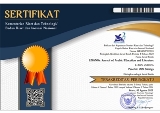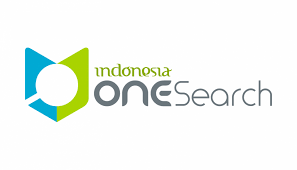Role of Boarding School in Improving Arabic Language Skills
Abstract
This research is focused on the role of boarding school to improve students' Arabic language skills at MAN 2 Palu. It is aimed at exploring the steps to improve their language skills and the methods and strategies used to improve Arabic language skills. The study uses field research with a qualitative descriptive design combined with observation data, interviews, and documentation. The results of the study indicate that the role of boarding schools is very big in improving the ability of students ability to speak Arabic with well-organized and steps such as tutoring activities in the afternoon and evening, habituation in Arabic, memorizing mufradât at dawn, giving sanctions in the form of memorizing vocabulary, and the existence of a language improvement team that works to monitor participants' discipline in using Arabic. The discussion method in learning Arabic, and the grammar and translation method in the guidance of the kitab kuning study at night. While the strategy used is to provide a lot of linguistic exercises, such as Arabic speech and drama exercises in Arabic.
Keywords
Full Text:
PDFReferences
A’la, A. (2006). Pembaruan Pesantren. Pustaka Pesantren.
Abdul Rohman (2014). Junior-Senior High School Based on Pesantren Boarding System. Jurnal Pendidikan Islam, 1(1).
Ardinal, E. (2017). Manajemen Pembelajaran Bahasa Dalam Meningkatkan Kemampuan Bahasa Arab dan Inggris (Studi di Ma’had Al-Jami’ah IAIN Kerinci). Tarbawi: Jurnal Ilmu Pendidikan, 13(1), 83-95.
El-Ushaili, Abdul Aziz bin Ibrahim (2009). Psikolinguistik Pembelajaran Bahasa Arab (J. Husni (ed.); Tarjamah). Humanora.
Fahrurrozi, Azis & Erta Mahyuddin (2011). Teknik Pembelajaran Bahasa Arab . Pustaka Cendekia Utama.
Bornstein, M. H., Hahn, C. S., & Putnick, D. L. (2016). Stability of core language skill across the first decade of life in children at biological and social risk. Journal of Child Psychology and Psychiatry, 57(12), 1434-1443.
Bull, V. (2011). Oxford: Learner’s Pocket Dictionary (4th ed.). Oxford University Press.
Devianty, R. (2017). Bahasa Sebagai Cermin Kebudayaan. Jurnal tarbiyah, 24(2).
Echol, J. M., & Shadily, H. (2010). Kamus Inggris-Indonesia. Gramedia Pustaka Utama.
Indianto, A. (2015). Kiat-kiat mempertajam daya ingat hafalan pelajaran. Diva Press.
Ismail, A. (2019). Metode Sosiodrama untuk Meningkatkan Kemampuan Bahasa Arab Siswa Madrasah Aliyah. al Mahāra: Jurnal Pendidikan Bahasa Arab, 5(2), 249-270.
Li, C., Huang, J., & Li, B. (2021). The predictive effects of classroom environment and trait emotional intelligence on Foreign Language Enjoyment and Anxiety. System, 96, 102393. https://doi.org/10.1016/j.system.2020.102393
Munawir (2012). Sejarah Pendidikan Islam. Indo Pramaha.
Munjiat, S. M. (2020). Implementation of Islamic Religious Education Learning in Higher Education on The Pandemic Period. Nazhruna: Jurnal Pendidikan Islam, 3(2), 285-295.
Murtadho (2006). Kumpulan Sinopsis Hasil-hasil Penelitian Pendidikan Agama dan Keagamaan. Kemenag RI.
Morse, JM. (1994). Critical Issue in Qualitative Research Methods. Sage Publications
Putro, A. A. Y., Suyanto, & Suryono, Y. (2019). New Tradition of Pesantren in Character Education. Journal of Physics: Conference Series, 1254(1). https://doi.org/10.1088/1742-6596/1254/1/012002
Shidqi, M. H., & Mudinillah, A. (2021). Pembelajaran Bahasa Arab dengan Memanfaatkan Lingkungan Berbahasa Bagi Mahasiswa di Perguruan Tinggi. JURNAL EDUCATION AND DEVELOPMENT, 9(3), 170-176.
Sudin, M. (2019). Integration of School and Pesantren Educational System As a Model of Character Education: Perspective of Educational Transformation. Sunan Kalijaga International Journal on Islamic Educational Research, 2(1), 32–59. https://doi.org/10.14421/skijier.2018.2018.21.03
Supriatna, D. (2018). Motivasi Orang Tua Memilih Pondok Pesantren Untuk Anaknya. Intizar, 24(1), 1-18.
Susiyani, A. S., & Subiyantoro (2017). Manajemen Boarding School dan Relevansinya dengan Tujuan Pendidikan Islam di Muhammadiyah Boarding School (MBS) Yogyakarta. Jurnal Pendidikan Madrasah, 2(2), 327. https://doi.org/10.14421/jpm.2017.22-08
Tolinggi, S. O. R. (2020). Model Pembelajaran Bahasa Arab di Pesantren Salafi dan Khalafi: Studi Pebandingan terhadap Pesantren Salafiyah Syafi’yah Pohuwato dan Pesantren Hubolo Tapa. Al-Lisan: Jurnal Bahasa (e-Journal), 5(1), 64-95.
Ubadah (2021). Internalization of Multicultural Values in Arabic Learning. Jurnal Hunafa: Studia Islamika. XVIII (1)
Unsi, B. T. (2015). Kemahiran Berbicara Bahasa Arab Melalui Penciptaan Lingkungan Bahasa. Tafáqquh: Jurnal Penelitian Dan Kajian Keislaman, 3(1), 123-141.
Wahyuningsih, R., & Fauzi, M. I. (2019). Eksistensi Bī’ah Lughawiyah dalam Meningkatkan Mufradāt di Asrama Putri Ma’had Nurul Islam Tengaran. Lisanan Arabiya: Jurnal Pendidikan Bahasa Arab, 3(2), 105-127.
Wekke, I. S. (2015). Arabic Teaching and Learning: A Model from Indonesian Muslim Minority. Procedia-Social and Behavioral Sciences 191, 286–290.
Yaqin, H. (2012). Islamic Boarding School Curriculum In Indonesia: A Case Study in Islamic Boarding School in South Kalimantan. Jurnal Al-Hikmah, XIII(1), 18–38.
Yusuf, M., & Wekke, I. S. (2015). Active Learning on Teaching Arabic for Special Purpose in Indonesian Pesantren. Procedia - Social and Behavioral Sciences, 191. https://doi.org/10.1016/j.sbspro.2015.04.245
Zulhannan (2014). Teknik Pembelajaran Bahasa Arab Interaktif. Raja Grafindo Persada.
DOI: https://doi.org/10.18326/lisania.v6i2.139-161
Refbacks
- There are currently no refbacks.
Copyright (c) 2022 Ubadah Ubadah

This work is licensed under a Creative Commons Attribution-ShareAlike 4.0 International License.
View My Stats







